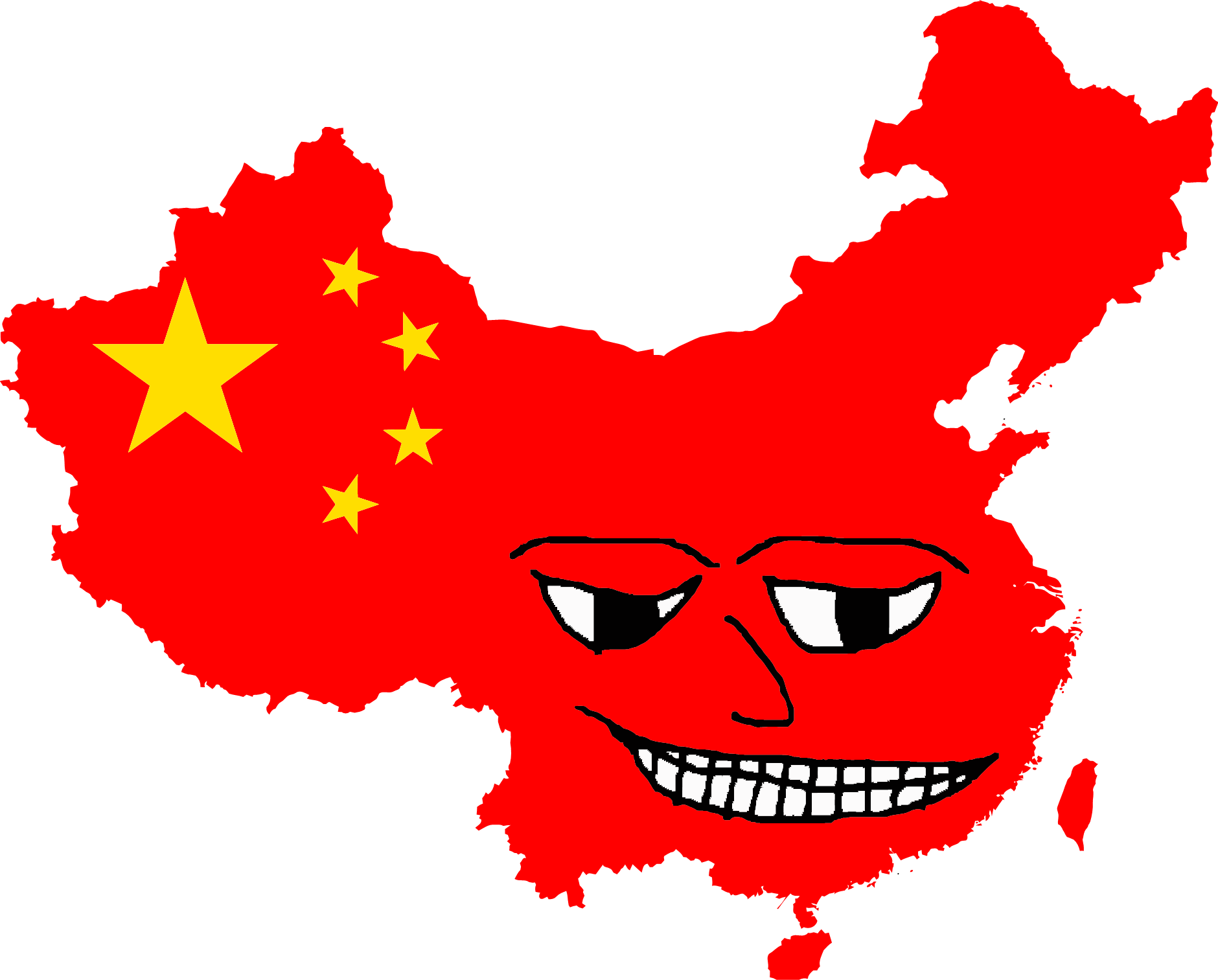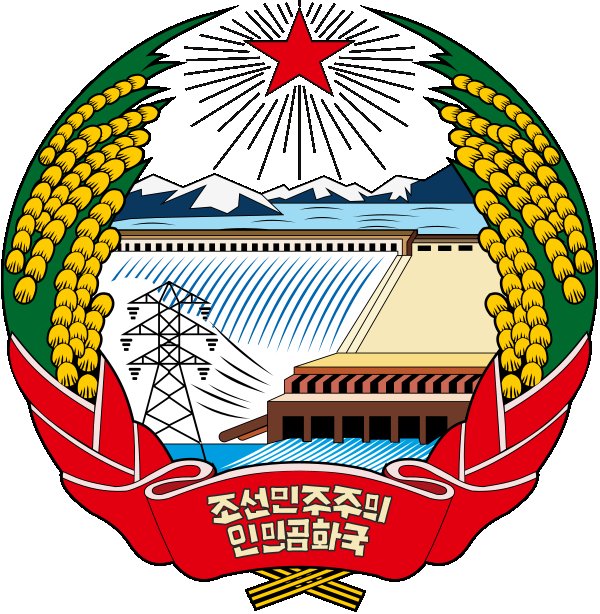I think the anti-corruption drive is one of Xi’s greatest achievements, easily on par with developing the economy. Even in the 2000s, government corruption was so widespread and blatant that it was basically done shamelessly in public.
I’m no PRC expert but it has to be high up there. Not only for efficiency/efficacy reasons, not only for better reputation, not only better at making things safer, but also because the corruption was extremely useful for CIA operations (according to a Foreign Policy report and all the ones citing it).
Extract from the article (Firefox’s Reader View shows the whole article):
click to expand
In 2010, a new decade was dawning, and Chinese officials were furious. The CIA, they had discovered, had systematically penetrated their government over the course of years, with U.S. assets embedded in the military, the CCP, the intelligence apparatus, and elsewhere. The anger radiated upward to “the highest levels of the Chinese government,” recalled a former senior counterintelligence executive.
Exploiting a flaw in the online system CIA operatives used to secretly communicate with their agents—a flaw first identified in Iran, which Tehran likely shared with Beijing—from 2010 to roughly 2012, Chinese intelligence officials ruthlessly uprooted the CIA’s human source network in China, imprisoning and killing dozens of people.
Within the CIA, China’s seething, retaliatory response wasn’t entirely surprising, said a former senior agency official. “We often had [a] conversation internally, on how U.S. policymakers would react to the degree of penetration CIA had of China”—that is, how angry U.S. officials would have been if they discovered, as the Chinese did, that a global adversary had so thoroughly infiltrated their ranks.
The anger in Beijing wasn’t just because of the penetration by the CIA but because of what it exposed about the degree of corruption in China. When the CIA recruits an asset, the further this asset rises within a county’s power structure, the better. During the Cold War it had been hard to guarantee the rise of the CIA’s Soviet agents; the very factors that made them vulnerable to recruitment—greed, ideology, blackmailable habits, and ego—often impeded their career prospects. And there was only so much that money could buy in the Soviet Union, especially with no sign of where it had come from.
But in the newly rich China of the 2000s, dirty money was flowing freely. The average income remained under 2,000 yuan a month (approximately $240 at contemporary exchange rates), but officials’ informal earnings vastly exceeded their formal salaries. An official who wasn’t participating in corruption was deemed a fool or a risk by his colleagues. Cash could buy anything, including careers, and the CIA had plenty of it.
At the time, CIA assets were often handsomely compensated. “In the 2000s, if you were a chief of station”—that is, the top spy in a foreign diplomatic facility—“for certain hard target services, you could make a million a year for working for us,” said a former agency official. (“Hard target services” generally refers to Chinese, Russia, Iranian, and North Korean intelligence agencies.)
Over the course of their investigation into the CIA’s China-based agent network, Chinese officials learned that the agency was secretly paying the “promotion fees” —in other words, the bribes—regularly required to rise up within the Chinese bureaucracy, according to four current and former officials. It was how the CIA got “disaffected people up in the ranks. But this was not done once, and wasn’t done just in the [Chinese military],” recalled a current Capitol Hill staffer. “Paying their bribes was an example of long-term thinking that was extraordinary for us,” said a former senior counterintelligence official. “Recruiting foreign military officers is nearly impossible. It was a way to exploit the corruption to our advantage.” At the time, “promotion fees” sometimes ran into the millions of dollars, according to a former senior CIA official: “It was quite amazing the level of corruption that was going on.” The compensation sometimes included paying tuition and board for children studying at expensive foreign universities, according to another CIA officer.
Chinese officials took notice. “They were forced to see their problems, and our mistakes helped them see what their problems were,” recalled a former CIA executive. “We helped bring to fruition what they theoretically were scared of,” said the Capitol Hill staffer. “We scared the shit out of them.” Corruption was increasingly seen as the chief threat to the regime at home; as then-Party Secretary Hu Jintao told the Party Congress in 2012, “If we fail to handle this issue well, it could … even cause the collapse of the party and the fall of the state,” he said. Even in China’s heavily controlled media environment, corruption scandals were breaking daily, tainting the image of the CCP among the Chinese people. Party corruption was becoming a public problem, acknowledged by the CCP leadership itself.
But privately, U.S. officials believe, Chinese leaders also feared the degree to which corruption had allowed the CIA to penetrate its inner circles. The CIA’s incredible recruiting successes “showed the institutional rot of the party,” said the former senior CIA official. “They ought to [have been] upset.” The leadership realized that unchecked corruption wasn’t just an existential threat for the party at home; it was also a major counterintelligence threat, providing a window for enemy intelligence services like the CIA to crawl through.
This was a global problem for the CCP. Corrupt officials, even if they hadn’t been recruited by the CIA while in office, also often sought refuge overseas—where they could then be tapped for information by enterprising spy services. In late 2012, party head Xi Jinping announced a new anti-corruption campaign that would lead to the prosecution of hundreds of thousands of Chinese officials. Thousands were subject to extreme coercive pressure, bordering on kidnapping, to return from living abroad. “The anti-corruption drive was about consolidating power—but also about how Americans could take advantage of [the corruption]. And that had to do with the bribe and promotion process,” said the former senior counterintelligence official.
The 2013 leaks from Edward Snowden, which revealed the NSA’s deep penetration of the telecommunications company Huawei’s China-based servers, also jarred Chinese officials, according to a former senior intelligence analyst. “Chinese officials were just beginning to learn how the internet and technology has been so thoroughly used against them, in ways they didn’t conceptualize until then,” the former analyst said. “At the intelligence level, it was driven by this fundamental [revelation] that, ‘This is what we’ve been missing: This internet system we didn’t create is being weaponized against us.’”
There were other ripple effects. By the late 2000s, U.S. intelligence officials had observed a notable professionalizing of the Ministry of State Security, China’s main civilian intelligence agency. Before Xi’s purges, petty corruption within the agency was ubiquitous, former U.S. intelligence officials say, with China’s spies sometimes funneling money from operations into their own “nest eggs”; Chinese government-affiliated hackers operating under the protection of the Ministry of State Security would also sometimes moonlight as cybercriminals, passing a cut of their work to their bosses at the intelligence agency.
Under Xi’s crackdown, these activities became increasingly untenable. But the discovery of the CIA networks in China helped supercharge this process, said current and former officials—and caused China to place a greater focus on external counterespionage work. “As they learned these things,” the Chinese realized they “needed to start defending themselves,” said the former CIA executive.
deleted by creator
So the scare mongering about China’s telecommunications hacking American technology is just projections, as always.
Well, hypocritical yes but I wouldn’t say empty projection. NATO countries, Russia, PRC, DPRK, Iran and everyone in-between are engaged in cyber-warfare. It would be ridiculous if any of them weren’t, in fact. And this includes supply chain attacks.
I honestly don’t know to what degree Huawei and TikTok etc. are or aren’t utilized, could be nationalist fear-mongering over nothing or could be rightful fear over active collection. As far as politicians and news articles go, that’s absolutely fear mongering, but if you look at things like PRISM and hardware bugging from those same NSA disclosures, and realize how much of a supply-chain risk China (and Taiwan) are for almost any computer electronics, I can’t even blame them for worrying about the technology being utilized by Chinese hackers.
This was one of the problems that the FBI and CIA had during the Cold War: they dismissed any suspicions of moles, because our white American good boys would never betray us. Therefore it must be the minorities in the office
As we all know, capitalism raises people to be ethical good boys who won’t betray their country.
deleted by creator
deleted by creator
This entire article reads as:
CIA:

For anyone who is stuck at the paywall:
Absolutely agree. Plus, you can go read about the collapse of most Chinese dynasties and find “official corruption” somewhere in there as a cause. It was a problem that needed to be tackled sooner or later.
 noooo you can’t, you can’t just punish capitalists, that’s against the rules!
noooo you can’t, you can’t just punish capitalists, that’s against the rules!deleted by creator
If “illegal” “bitcoin mine” isn’t redundant, it should be.
apparently they banned it so bitcoin mining still going on is illegal now
deleted by creator
Crypto bros are scum. Your imaginary gold isn’t worth jeopardizing millions of people!
I remember when the Texas grid froze up and was having major issues during winter storms in 2021(?). Some of the major mining operations ‘voluntarily’ stopped mining during the time.
In a sane country, those people would have been jailed for jeopardizing human lives before it ever got to that point, but since the US is basically ancap heaven, they get to do whatever the fuck they want because we don’t have laws explicitly prohibiting it.
The main reason coin miners went to Texas was because of the wacky market dynamics of the grid there. They can actually make money by doing voluntary ‘curtailing’ of use when the grid is over utilized because of the wacky way the market is setup. There’s even been some more recent analysis of the freeze outage that points to it being specifically a market failure. Essentially the economics of making electricity for profit stopped working due to the spot pricing mechanics during the start of the freeze.
I’ll try to find an article to post later.
e:
this one is just a detailed overview of things:
https://www.sciencedirect.com/science/article/pii/S2214629621001997
a few interesting quotes:
One reason gas producers lost power is that many of them intentionally sign up for interruptible power contracts as a way to reduce their electricity bills. Furthermore, a significant number of them did not fill out a short form requesting that they be identified as critical infrastructure, compounding the problem. Electricity providers unwittingly shut power off to some gas production and processing facilities, which reduced gas pressure further, thereby forcing more generating capacity offline when fuel was unavailable for gas-fired electricity plants. According to ERCOT, more than 9 GW of outages, about 20% of the total and enough for 1.8 million homes, resulted from insufficient gas supplies reaching power plants
During the freeze, Griddy Energy was in the news for passing on wholesale prices to customers, which led to thousands of Texans facing extreme power bills, some in excess of $10,000. Meanwhile, many gas providers have announced increased profits, revenues, share buybacks and increased dividends based on the strength of bumper sales of natural gas at very high prices during the 5-day storm
Up until the price cap was set, prices on February 15th had only risen to $1200 which the PUC judged as inconsistent with what was needed given that nearly 50 GW of power were offline. However, many producers had trouble reacting to these price incentives given that their operations were not adequately weatherized and gas supplies were curtailed. In other words, those power plants were not available at any price. At $9000/MWh, electricity retailers were concerned they would be forced to pay more for electricity that was available and that the high prices were sustained for far too long [44]. In previous periods of scarcity, high prices remained in place for a few hours, with 16.75 h the previous maximum in 2011 [45].
ERCOT stopped shedding load from the grid by 11:55 pm on February 17th, but kept in place the pricing order until the 19th. That led Potomac Economics, the PUC’s Independent Market Monitor, to issue a letter that said the pricing order had remained in effect for 32 h longer than it should have, leading initially to an estimated $16 billion in excessive charges to electricity retailers during that period, out of some $47 billion that was charged during the load shed event
another report put together by UT Austin: https://energy.utexas.edu/sites/default/files/UTAustin (2021) EventsFebruary2021TexasBlackout 20210714.pdf
It gets pretty interesting starting on page 57 “Electricity and Natural Gas Financial Flows and Prices”
some interesting quotes:
The value of the Real-Time Reserve Price Adders is based on the Operating Reserve Demand Curve (ORDC). Via the ORDC, once reserves fall below 2,300 MW, wholesale real time prices increase rapidly to the system-wide offer cap, currently $9,000/MWh. These adders largely explain the rapid swings in real-time wholesale electricity prices, from values below $1,000/MWh to the cap, from February 12-15.
Real-Time Reserve Price Adders only include data from “in-market” conditions and do not include “out-of-market” actions98 that might impact in-market conditions
According to current market protocols, if ERCOT initiates blackouts such that reserves appear high and recalls or cancels other out-of-market actions, price formation is once again based on supply and demand, even if demand is artificially lower due to active blackouts. This is why prices on February 15 were below $9,000/MWh for part of the day.
Because of the extreme demand for natural gas and constraints in natural gas supply, the price of natural gas was also much higher than normal during the February event. At one point, daily gas price averages at the LCAP-indexed hub were trading near $400/MMBTU. Tom Hancock, COO of Garland Power and Light, testified that he received a quote for natural gas at $1,100/MMBtu.
So that last one is kinda the smoking gun for my theory that gas-generators/producers likely decided not to ‘run in the red’ when the gas spot price exceeded the ERCOT price cap.
1 Million British Thermal Units = 1 MMBTU
Wiki says this is the conversion factor: 1,000 Btu/h is approximately 0.2931 kW
So clearly it wouldn’t fit with Capitalist logic to run a gas power plant when the gas price is so high compared to the ERCOT price. Unfortunately, I haven’t found direct evidence that this specifically occurred. But the entire ‘market incentives’ logic here seems to dictate that it very likely happened. It’s just that hardly anyone involved in the Texas energy market is very likely to admit to making that specific calculation during the winter storm.
During the freeze, Griddy Energy was in the news for passing on wholesale prices to customers, which led to thousands of Texans facing extreme power bills, some in excess of $10,000. Meanwhile, many gas providers have announced increased profits, revenues, share buybacks and increased dividends based on the strength of bumper sales of natural gas at very high prices during the 5-day storm
I’m going to fedpost
Again, in a country with any modicum of sanity, the federal government would have stepped in and squashed this shit like a bug.
If I get a power bill for 10k that is ‘legitimate’ and the company refuses to discharge, I’m going to be committing redacted
deleted by creator
and it is a coal power plant
deleted by creator
I do, and I’m tired of pretending it’s not. 🤡
Noooooo this is authoritarianism! We need to let him go and then the free market will punish him! The state should only incarcerate poor people!
You’re going too far! We’ll sentence him to not leaving his mansion for a few years, and then release him on parole after a month. That will definitely teach him a lesson!



 fine art?
fine art?New emoji just dropped.
Haha, thank you. I guarantee you will see it on crypto dump posts lmao

He’s not gonna talk.
NOOOOO THE MAGIC INTERNET MONEY IS INVISIBLE AND ANONYMOUS THIS ISNT POSSIBLE

This is good for bitcoin
If I were him I simply wouldn’t waste excessive amounts of electricity on useless bullshit
Lmao owned
“Oh? You’re approaching me?” “I can’t get the corruption out of you without getting closer.”
























